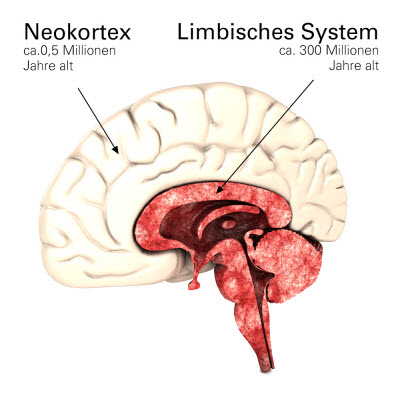Does your used car marketing appeal to your customers' emotions?
What do you think is important when selling? ‘Emotions are essential’, many marketing experts believe they know, but ...

What do you think is important when selling? ‘Emotions are essential’, many marketing experts believe they know, but then conjure up the myth of the rational consumer with a big “but!”: ’If the price isn't right, all the emotions won't do any good.’ Customers are nowhere near as indecisive as marketers when it comes to shopping.
THE ENVIRONMENT SHAPES PRICE PERCEPTION
Whether a blouse is lying crumpled on the rummage table or hanging as a unique piece in a designer shop, for example, makes a huge difference to a shopper. The offers arouse different emotions in her. Studies have shown that the environment has a considerable influence on the customer's price perception. This is why the shopper is prepared to pay considerably more for the same blouse in the designer shop than when it is displayed on the rummage table.
PRESENTATION AND PRICE ACCEPTANCE IN CAR DEALERSHIPS
This principle naturally applies not only to the fashion trade, but also to used car marketing. The overall impression of the dealership, including the presentation of the individual vehicle, is a decisive factor in the customer's decision to buy. The higher the quality of the presentation, the higher prices the customer will expect and be prepared to accept during the purchasing process. Unfortunately, however, this formula is no guarantee of sales success. The whole thing only works when real positive emotions build up in the customer.
TRUST AS THE KEY TO BUYING WILLINGNESS
There is the type of customer who is immediately in a positive mood when they enter the perfectly staged brand world of a car dealership in anticipation of a high-quality offer. However, many customers enter the carefully planned design temples of glass and metal with mixed feelings. Most customers need one positive emotion above all: trust. Only then can they open themselves up to making a purchase.
EMOTIONS PREVAIL OVER FACTS AND FIGURES
Psychologist Hans-Georg Häusel explains this as follows: ‘The rationality of our brain lies in maximising positive emotions through our actions.’ What the marketing experts surveyed forget is that once genuine positive emotions are aroused and consumers feel safe and understood, facts and figures - and therefore prices - lose their relevance.
THE LIMBIC SYSTEM: POWER CENTRE OF EMOTIONS
The reason for the triumph of emotions: They play a central role in our brain. Emotions arise in the limbic system, which is therefore also known as the emotional power centre. This part of our brain is several hundred million years older than the neocortex, which we use to perform conscious thought.

HOW THE LIMBIC SYSTEM FILTERS
The limbic system works like a bouncer and has the fundamental task of evaluating and filtering the thousands of impressions that assail us every day in a fraction of a second. There is only one thing that matters: is this information relevant for the survival of the organism - or not? Information that does not evoke any significant emotions is assessed by the limbic system as irrelevant - and immediately deleted.language alone does not trigger emotions if images are not created in the mind at the same time. This is why the limbic system can only be reached via the five senses: Hearing, seeing, smelling, tasting and feeling.
PRIMAL INSTINCTS AND MODERN PERCEPTION
Many situations in our modern world are no longer assessed appropriately by the limbic system from today's perspective - but we actually have no influence on this system, which is millions of years old. One example: Why do many people react to spiders and snakes with a fear that is completely irrational from today's perspective? In fact, in our culture today, more people die in car accidents than from snake bites. Few ever encounter a life-threatening species. Nevertheless, there is no similar ‘primal fear’ of cars, even though they can potentially kill people just as easily if they are inattentive for even a moment.
EMOTIONAL SIGNIFICANCE IS KEY
Information must have an emotional meaning, otherwise it cannot get past the ‘gatekeeper’ limbic system. Neuroscientists have proven this in numerous studies: We follow emotional content more attentively and remember it better. Images therefore play a major role in sales. They convey emotions more easily and more quickly than words. For example, a picture showing cheerful people, dreamy landscapes or impressive vehicle perspectives appeals directly to used car customers via the limbic system. Panels full of technical details in font size 11 in the windscreen of a demonstration car, on the other hand, do not trigger any emotions. Such a flood of non-emotional information not only attracts little attention but, in the worst case, can make the customer feel overwhelmed and therefore refuse to buy. Especially if they also have to decide between several very similar vehicles and have not already lost their heart to a particular vehicle for other - emotional - reasons.
WHY EMOTIONS DECIDE THE PRICE
So the price is useless if the emotions are not right. This is because the limbic system is constantly outpacing our consciousness. It decides and filters at lightning speed according to its own criteria, which are characterised by millions of years of knowledge. It doesn't matter whether these criteria are appropriate and sensible in the current situation. On the contrary, from a purely rational point of view, they may have no relevance at all. The following therefore applies: a sale can only be concluded if the customer's emotional system is positively addressed. This applies not only to new car customers - but also to used car buyers in particular.


